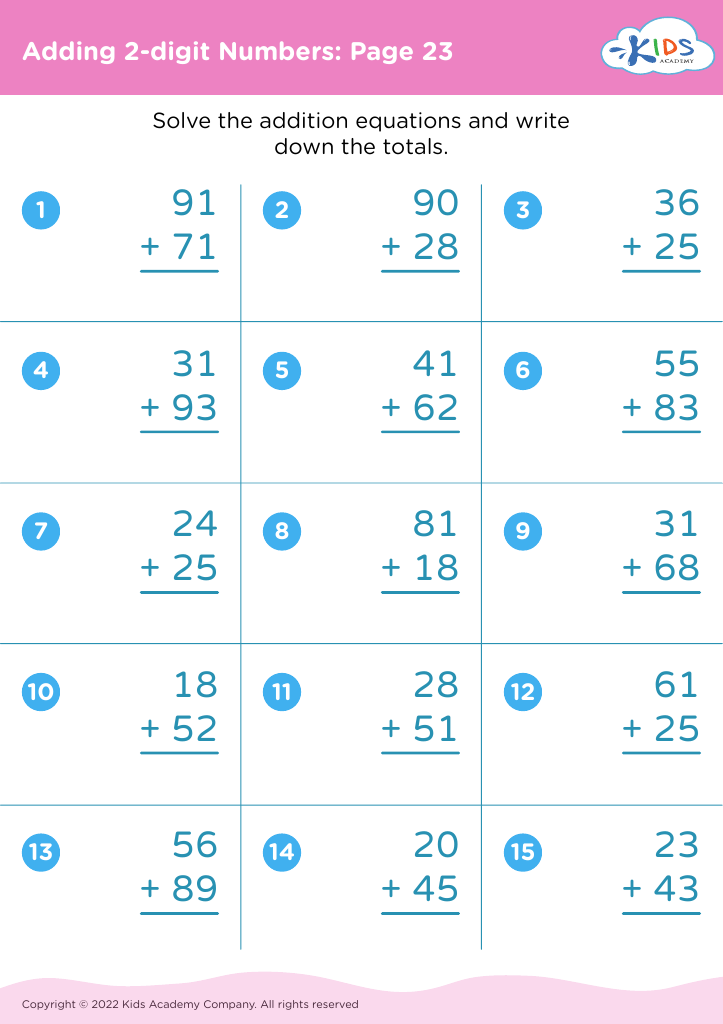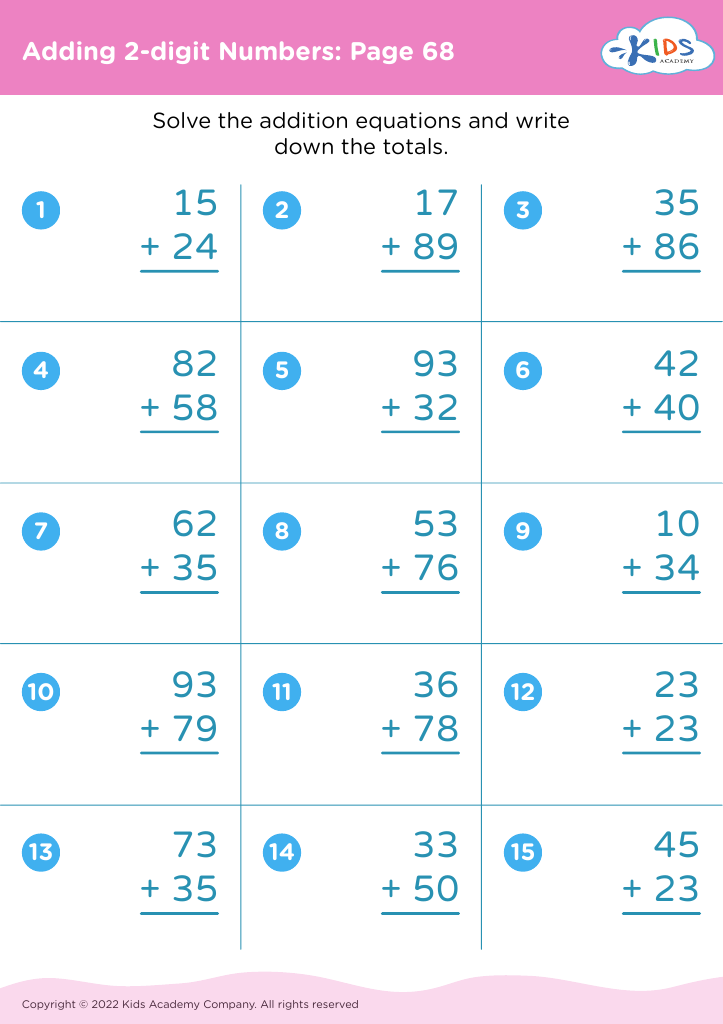Numeracy skills Adding 2-digit Numbers Worksheets for Ages 3-8
3 filtered results
-
From - To
Enhance your child's numeracy skills with our engaging "Adding 2-Digit Numbers Worksheets" designed specifically for ages 3-8! These printable resources offer a fun and interactive way for young learners to practice addition, laying a strong foundation for their mathematical abilities. Each worksheet features colorful illustrations and varying difficulty levels to cater to different skill sets, promoting both learning and motivation. Parents and educators will appreciate how these worksheets encourage critical thinking and problem-solving skills while making math enjoyable. Explore our collection today and watch your child gain confidence in adding 2-digit numbers as they play and learn simultaneously!
Numeracy skills, particularly the ability to add 2-digit numbers, are foundational for young learners aged 3-8. This stage is critical for developing mathematical comprehension, which supports broader cognitive development. Mastering addition lays the groundwork for more complex arithmetic and problem-solving skills in later grades.
Moreover, strong numeracy skills are linked to success across subjects, instilling confidence and promoting a positive attitude toward math. Young children who grasp addition can see the practical applications of math in everyday life, which enhances their engagement and motivation to learn.
From a behavioral perspective, understanding numbers fosters critical thinking and logical reasoning. When children learn to add, they start to recognize patterns and relationships among numbers, essential for higher-level mathematical concepts. Teachers and parents play a crucial role in this development, offering diverse opportunities for practice through games, real-life scenarios, and interactive activities.
Additionally, instilling a solid numerical foundation helps mitigate math anxiety as children progress in their education. Early support can build resilience and a willingness to tackle challenging math concepts. Therefore, fostering these skills enriches a child's educational journey and prepares them for lifelong success in numeracy and beyond.



















